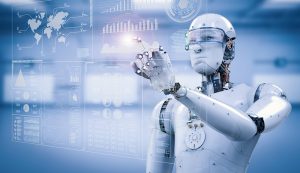[vc_row][vc_column][mk_padding_divider size=”20″][mk_dropcaps style=”fancy-style”]W[/mk_dropcaps][vc_column_text css=”.vc_custom_1561992175719{margin-bottom: 0px !important;}”]ednesday, June 26th was the first democratic debate for the 2020 primary election in Miami, FL. 10 candidates discussed current issues including transgender rights, Medicare-for-all, Iran, immigration and gun laws. Like any presidential debate, these are issues at hand that candidates discuss in every primary election. In the 2016 primary election, the main topics discussed were the economy, terrorism, foreign policy, health care, gun policy and immigration.
Due to the rise of technology and big tech companies, a new issue for discussion has been brought up, which is big tech companies’ use of user data, data policies and data regulations. Since the primary election is still in the early stages, key topics such as immigration are likely to be discussed more than data policies.
Although the issue of consumer data and data regulations were not a key debate point discussed on night one of the DNC, the plans Elizabeth Warren has for breaking up major tech companies were alluded to when she was asked her first question about her policy-heavy approach and how she has a number of plans.
In her closing statement Warren said, “I believe that we can make our government, I believe we can make our economy, we can make our country work, not just for those at the top. We can make it work for everyone…”

Thursday, June 27th was the second democratic debate for the 2020 primary election. The main topics discussions veered more from the night one theme of policy and more towards politics. Private healthcare, tuition-free colleges and universities, less deportation, and immigration were all issues discussed during night two.
Senator Eric Caldwell proposed a generational shift in politics, a “passing of the torch” to the younger generation in politics. He was then asked about technology advances and many Americans’ fear of automation replacing jobs. [/vc_column_text][mk_padding_divider size=”20″][mk_blockquote font_family=”none” align=”left”]“Many Americans are worried that things like self-driving cars, robots, drones, artificial intelligence will cost them their jobs. What would you do to help them get the skills they need to adapt to this new world?” In his response Caldwall stated, “We must always be a country where technology creates more jobs than it displaces.” [/mk_blockquote][mk_padding_divider size=”20″][vc_column_text css=”.vc_custom_1561739139148{margin-bottom: 0px !important;}”]In part of Caldwall’s closing statement he affirmed that “if we’re going to solve the issues of automation, pass the torch.”

Technology-centered issues such as Americans’ anxiety surrounding artificial intelligence taking their jobs and new legislation proposed to address data privacy may be better handled by the younger generation in politics, as Caldwell mentioned. Candidates Caldwell and Andrew Yang, a former tech executive, both can be predicted to discuss technology-related issues such as artificial intelligence, big tech, and data policies, due to Yang’s background in the industry and Caldwell’s “passing the torch” stance.
However, that doesn’t necessarily mean that politicians in the older age category are not aware of new technology advancements. Candidate Elizabeth Warren already has her plan for breaking up Amazon, Google and Facebook; those “at the top” in the tech industry.
Senators Mark Warner and Josh Hawley recently introduced the DASHBOARD Act prior to the first democratic debate. This introduces that data privacy is an issue at hand. Since such an impactful bipartisan legislation was just introduced, all candidates should be aware of the legislation and voice their stance.
- https://www.washingtonpost.com/politics/democratic-debate-2019/2019/06/25/af9fd37e-96af-11e9-8d0a-5edd7e2025b1_story.html?noredirect=on&utm_term=.8317cdba0caf
- https://medium.com/@teamwarren/heres-how-we-can-break-up-big-tech-9ad9e0da324c
- https://www.vox.com/2019/6/26/18760656/democratic-debate-elizabeth-warren-won
- https://www.npr.org/2019/06/28/736800868/5-takeaways-from-night-2-of-the-democratic-debate
[/vc_column_text][/vc_column][/vc_row][vc_row][vc_column][mk_fancy_title][/mk_fancy_title][/vc_column][/vc_row]
